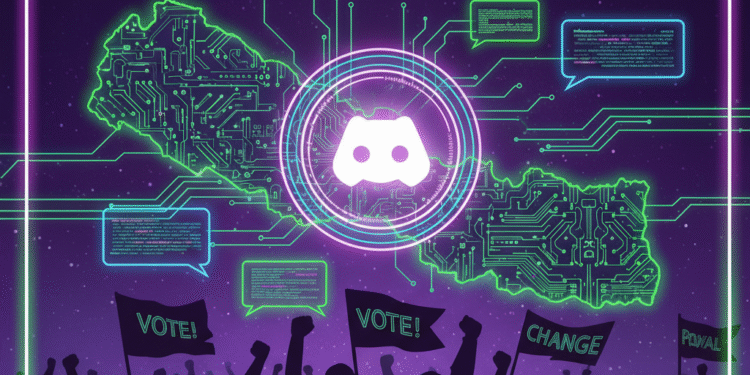Kathmandu’s Digital Earthquake
Nepal, known more for its breathtaking Himalayan peaks than Silicon Valley scandals, has been shaken to its core by something entirely different: Discord, the gaming chat app turned political battlefield. What started as a niche platform for gamers has snowballed into a shadow parliament, where political debates, underground campaigns, and viral propaganda now thrive away from mainstream media.
And the political elite? They never saw it coming.
From Memes to Movements
It began innocently enough — meme pages, study groups, and online communities using Discord’s server-based structure to hang out. But by 2022, young activists realized the app’s power: closed groups with encrypted voice chats, private channels for coordination, and the ability to mobilize thousands in real time.
“On Facebook, the government watches you. On Discord, the government doesn’t even know where to look,” one political science student told Radar Tech, requesting anonymity.
By mid-2023, Discord servers had become digital headquarters for student protests, anti-corruption campaigns, and grassroots organizing that spilled into the streets of Kathmandu, Pokhara, and Biratnagar.
The Politicians Panic
Nepal’s aging political class — many of whom still prefer televised speeches and newspaper columns — were caught off guard. A leaked memo obtained by Radar Tech reveals how officials scrambled to understand Discord, mistakenly referring to it as “a hacker site” in early reports.
“The truth is, we underestimated the youth,” said one unnamed government insider. “We thought social media meant Facebook. We didn’t realize they had moved underground into new platforms like Discord.”
The result? A wave of policy reversals, resignations, and shifting alliances, all linked back to pressure coordinated online.
Discord: The Digital Weapon
Why Discord and not Twitter, TikTok, or Instagram? Analysts say three key reasons:
-
Privacy: Servers can be locked, chats can vanish, and outsiders can’t easily infiltrate.
-
Community: Unlike one-to-many platforms, Discord feels like a private clubhouse, making trust stronger.
-
Speed: Voice channels allow instant mobilization, far faster than waiting for a viral tweet.
Political observers now argue that Nepal’s 2024 student uprisings might never have succeeded without Discord.
Shadows and Suspicions
Of course, with power comes controversy. Radar Tech has learned that several Discord servers were also used for disinformation campaigns — spreading fake news about candidates, pushing conspiracy theories, and amplifying international agendas.
One particularly active server, now banned, was allegedly linked to foreign funding networks seeking to influence Nepal’s fragile democracy. Intelligence sources suggest some channels even experimented with AI-driven bots to flood conversations.
The big question: Who’s really pulling the strings?
Nepal Is Just the Beginning
Experts warn that what’s happening in Nepal could be a blueprint for other developing democracies. When mainstream media is slow, censored, or distrusted, youth will find new digital tools to take control.
“This is the WhatsApp effect on steroids,” said a Kathmandu-based journalist. “What WhatsApp was to Brazil and India, Discord is to Nepal.”
And Silicon Valley? Executives are watching closely. Discord, originally meant for gamers, now finds itself at the center of global political disruption.
The Fallout
Nepal’s government is reportedly considering new digital laws, while opposition leaders are actively recruiting “Discord-savvy” campaigners. Meanwhile, activists show no signs of slowing down.
The next election cycle may be decided not in parliament, not on television, but inside the buzzing, neon-lit chatrooms of Discord.
As one server admin proudly declared:
“The streets may belong to the old men. But the future belongs to Discord.”




